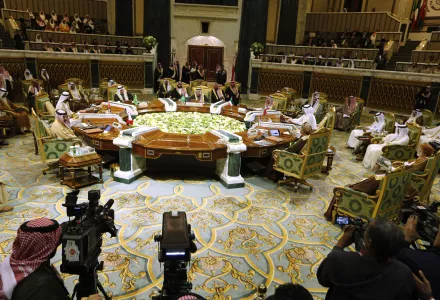
Download the PDF version:
Introductions
The Gulf Cooperation Council (GCC) countries—Bahrain, Kuwait, Oman, Qatar, Saudi Arabia, and the United Arab Emirates (UAE)—face the dual shock of a pandemic caused by the novel coronavirus and a persistent collapse in oil prices.
Because of the dual shock, the growth downgrade for the GCC as a whole is 7.5 percentage points in 2020 (World Bank, 2020). This can be considered as the cost of the dual shock—Arezki and others, 2020. But there is wide uncertainty about the estimate, which could be even higher. GCC countries must act collectively and boldly today to reduce the risk of an economic depression. A delayed and tenuous response may force authorities to spend even more in the future to, among other things, rescue cash-strapped members, as non-performing loans and bankruptcies become widespread (Ari et al., 2020). A powerful joint mechanism to cushion the blow, and ensure solidarity and stability of the GCC is warranted.
Arezki, Rabah and Aitor Erce. “A Proposal for a Stability Mechanism for the Gulf Cooperation Countries.” December 2020





